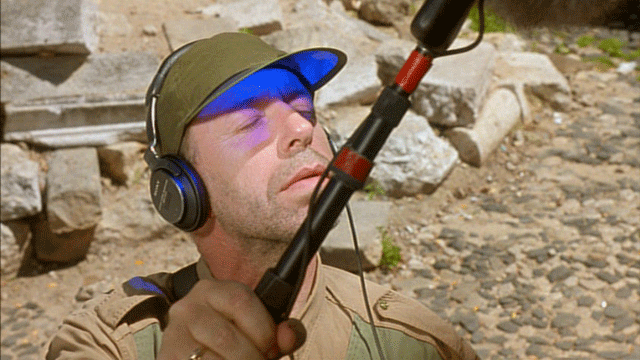Wim Wenders’ wonderfully-crafted film Lisbon Story (1994) is predicated on the richness of experience, and how it can transform mere footage. As Ruttmann and Vertov did in the 1920s with Berlin and Man With A Movie Camera, respectively, Wenders prevents a clear narrative from developing through a series of whimsical, often frivolous vignettes. Indeed, for most of Lisbon Story, the passage of time is vague and unclear, emphasizing the helplessness of Phillip Winter, the sound engineer, as he works without direction on the sounds for the film of his filmmaker friend, Friedrich Monroe. It isn’t until Winter begins to unravel Monroe’s madness through his Handycam video-journals, that we see evidence of time passing—Winter cuts off his cast, catches the bothersome fly, finally discovers that Ricardo, the curiously elusive boy, is an ‘agent’ of Monroe—before ultimately finding Monroe himself.
However, Wenders has precisely the opposite intention of his “city symphony” predecessors: he intends to tell the story of personal experience, rather than prescribing ideologies. Therefore, the travails of Winter not only contribute the sound for the film, but his experiences in recording them. In one vignette, he interviews a middle-aged gentleman for the unfinished movie, who declares “the only true thing is memory” and wonders whether a moment, caught on tape, exists outside of it. The interviewee implies that because the camera only captures moments in time, a film is merely the “ghost” of a moment—not the moment itself—without the memory of the experience. For instance, Monroe’s wandering protégés, Sofia and Zé, film without discretion, but they relive their experiences through the mundane footage; consider the lively argument between the two when they re-watch Sofia practicing her ballet, or their rapt smiles when watching the footage from school. →
